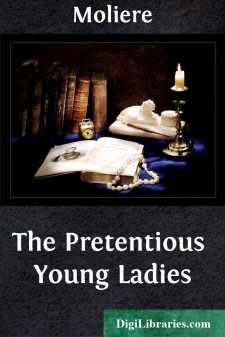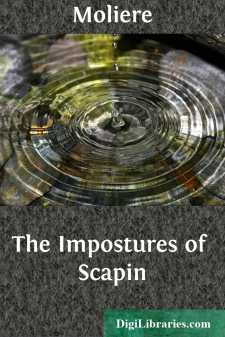Categories
- Antiques & Collectibles 13
- Architecture 36
- Art 48
- Bibles 22
- Biography & Autobiography 813
- Body, Mind & Spirit 142
- Business & Economics 28
- Children's Books 15
- Children's Fiction 12
- Computers 4
- Cooking 94
- Crafts & Hobbies 4
- Drama 346
- Education 46
- Family & Relationships 57
- Fiction 11828
- Games 19
- Gardening 17
- Health & Fitness 34
- History 1377
- House & Home 1
- Humor 147
- Juvenile Fiction 1873
- Juvenile Nonfiction 202
- Language Arts & Disciplines 88
- Law 16
- Literary Collections 686
- Literary Criticism 179
- Mathematics 13
- Medical 41
- Music 40
- Nature 179
- Non-Classifiable 1768
- Performing Arts 7
- Periodicals 1453
- Philosophy 64
- Photography 2
- Poetry 896
- Political Science 203
- Psychology 42
- Reference 154
- Religion 513
- Science 126
- Self-Help 84
- Social Science 81
- Sports & Recreation 34
- Study Aids 3
- Technology & Engineering 59
- Transportation 23
- Travel 463
- True Crime 29
The Pretentious Young Ladies
by: Moliere
Description:
Excerpt
There is no doubt that aristocratic society attempted, about the latter years of the reign of Louis XIII., to amend the coarse and licentious expressions, which, during the civil wars had been introduced into literature as well as into manners. It was praiseworthy of some high-born ladies in Parisian society to endeavour to refine the language and the mind. But there was a very great difference between the influence these ladies exercised from 1620 until 1640, and what took place in 1658, the year when Molière returned to Paris. The Hôtel de Rambouillet, and the aristocratic drawing-rooms, had then done their work, and done it well; but they were succeeded by a clique which cared only for what was nicely said, or rather what was out of the common. Instead of using an elegant and refined diction, they employed only a pretentious and conceitedly affected style, which became highly ridiculous; instead of improving the national idiom they completely spoilt it. Where formerly D'Urfe, Malherbe, Racan, Balzac, and Voiture reigned, Chapelain, Scudéry, Ménage, and the Abbé Cotin, "the father of the French Riddle," ruled in their stead. Moreover, every lady in Paris, as well as in the provinces, no matter what her education was, held her drawing-room, where nothing was heard but a ridiculous, exaggerated, and what was worse, a borrowed phraseology. The novels of Mdlle. de Scudéry became the text-book of the précieux and the précieuses, for such was the name given to these gentlemen and ladies who set up for wits, and thought they displayed exquisite taste, refined ideas, fastidious judgment, and consummate and critical discrimination, whilst they only uttered vapid and blatant nonsense. What other language can be used when we find that they called the sun l'aimable éclairant le plus beau du monde, l'epoux de la nature, and that when speaking of an old gentleman with grey hair, they said, not as a joke, but seriously, il a des quittances d'amour. A few of their expressions, however, are employed even at the present time, such as, châtier son style; to correct one's style; dépenser une heure, to spend an hour; revètir ses pensées d'expressions nobles, to clothe one's thoughts in noble expressions, etc.
Though the précieux and précieuses had been several times attacked before, it remained for Molière to give them their death blow, and after the performance of his comedy the name became a term of ridicule and contumely. What enhanced the bitterness of the attack was the difference between Molière's natural style and the affected tone of the would-be elegants he brought upon the stage.
This comedy, in prose, was first acted at Paris, at the Théâtre du Petit Bourbon, on the 18th of November, 1659, and met with great success. Through the influence of some noble précieux and précieuses it was forbidden until the 2d of December, when the concourse of spectators was so great that it had to be performed twice a day, that the prices of nearly all the places were raised (See Note 7, page xxv.), and that it ran for four months together. We have referred in our prefatory memoir of Molière to some of the legendary anecdotes connected with this play.
It has also been said that our author owed perhaps the first idea of this play to a scarcely-known work, le Cercle des Femmes, ou le Secret du Lit Nuptial; entretiens comiques, written by a long-forgotten author, Samuel Chapuzeau, in which a servant, dressed in his master's clothes, is well received by a certain lady who had rejected the master. But as the witty dialogue is the principal merit in Molière's play, it is really of no great consequence who first suggested the primary idea.
The piece, though played in 1659, was only printed on the 29th of January, 1660, by Guillaume de Luyne, a bookseller in Paris, with a preface by Molière, which we give here below:
A strange thing it is, that People should be put in print against their Will. I know nothing so unjust, and should pardon any other Violence much sooner than that.
Not that I here intend to personate the bashful Author, and out of a point of Honour undervalue my Comedy. I should very unseasonably disoblige all the People of Paris, should I accuse them of having applauded a foolish Thing: as the Public is absolute Judge of such sort of Works, it would be Impertinence in me to contradict it; and even if I should have had the worst Opinion in the World of my Pretentious Young Ladies before they appeared upon the Stage, I must now believe them of some Value, since so many People agree to speak in their behalf. But as great part of the Pleasure it gave depends upon the Action and Tone of the Voice, it behooved me, not to let them be deprived of those Ornaments; and that success they had in the representation, was, I thought, sufficiently favorable for me to stop there. I was, I say, determined, to let them only be seen by Candlelight, that I might give no room for any one to use the Proverb; [Footnote: In Molière's time it was proverbially said of a woman, "Elle est belle a la chandelle, mais le grand jour gate tout." She is beautiful by candle-light, but day-light spoils everything.] nor was I willing they should leap from the Theatre de Bourbon into the Galerie du Palais....












